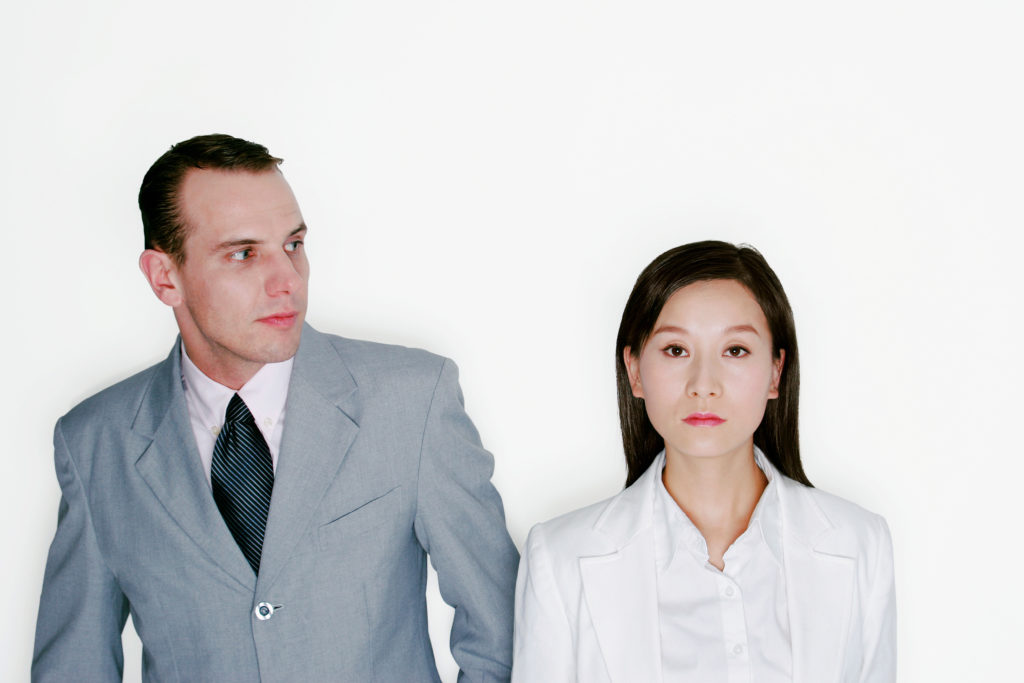You May Be Microsleeping
It’s true. You may be microsleeping.
Right now? Probably not, but it’s possible. Are you reading this late at night and struggling to comprehend? Are you reading the same sentence over and over but not getting much further? If so, you may be microsleeping.
But microsleeping doesn’t just happen late at night when you should be in bed, asleep. It can happen any time of the day, and in almost any situation. Sounds embarrassing? It sure can be.
“Hey. You okay?”
“Hello? Anyone in there?”
“Did you hear what I said?”
If family members, coworkers, customers, store clerks, the mail carrier…just about anyone you may encounter has said anything like this to you, you may be microsleeping.
Microsleeps can happen without your even closing your eyes. You may appear awake to the people around you, but they may accuse you of not paying attention or tell you that you have a blank look on your face.
Sometimes it will be very obvious to those around you that you’re dozing off, even if you aren’t aware and in fact, adamantly and honestly deny it.
What is microsleeping?
First, let’s talk about what microsleeps are not. A microsleep is not a power nap. Power naps are short sleeps, usually taken on purpose, lasting 20 minutes or less. You might take a power nap to quickly get a fresh burst of alertness. It can help revitalize and help you make it through the rest of your day, short-circuiting the natural mid-afternoon energy lull.
A microsleep, on the other hand, is never done on purpose. It can be a result of a sleep-deprived brain attempting to rejuvenate and get a tiny bit of extra sleep. It can also happen while doing boring, mindless tasks. It happens fast, and you just drop off for several seconds.
According to the National Sleep Foundation, “microsleep occurs so quickly that people who have an episode might not even realize they have fallen asleep. Microsleep can occur at any time of day, not just at night. During an episode, you may appear to be awake, and even have your eyes open, but your brain does not process information.”
Is that alarming, or what? Most of us want to feel like we are in control of ourselves. Knowing that we may not be fully in control for up to 15 seconds and not even be aware of it does not feel good.
Microsleep Hazards and What to Do About It
The concern is that we could microsleep when we’re in the middle of some pretty critical activities. Driving a car, a tractor-trailer or a school bus, flying a plane, engineering a train, operating heavy equipment, conducting surgery or other medical procedures – all these activities require vigilance and alertness. A few seconds in a microsleep can cause a great amount of harm or even be fatal to yourself or others.
Microsleeps are more likely to happen when we are very fatigued or sleep deprived, very bored, or even when we’re simply in a quiet, peaceful place. It can easily come over you sitting and watching TV or reading. A dull meeting at work, or a less-than-stimulating lecture at school or sitting in church are other places where microsleeping is common.
There are several things that can put you at a higher risk for microsleeping. Not getting enough sleep – whether regularly coming up short, or just one night of not getting much pillow time is one culprit. Obstructive sleep apnea and narcolepsy can increase your odds of experiencing microsleeping. And people who work shifts, especially those with irregular schedules are more likely to experience it.
Knowing what may be causing it is helpful, but that doesn’t always translate into an easy solution. Most of us who don’t get enough sleep are well aware of it. But we tend to deprioritize sleep so we can get other things done. We may not want to sacrifice our rest, but somehow 24 hours just don’t seem like enough to keep up.
Reducing the Chance of Microsleeping
Now that we know what can cause microsleeping, what’s the best way to avoid having it happen to you?
- Don’t be sleep deprived.
- Don’t be bored.
- Don’t sit still.
- Don’t do anything monotonous.
Simple, right? If only.
All you can do is try your best to make sleep as much a priority as good nutrition, exercise, and personal hygiene. It’s not always easy, but you may find the improvements in how you feel make it worthwhile.
To help you with getting better sleep, explore some of our other articles and blog posts:


0 Comments on “You May Be Microsleeping”